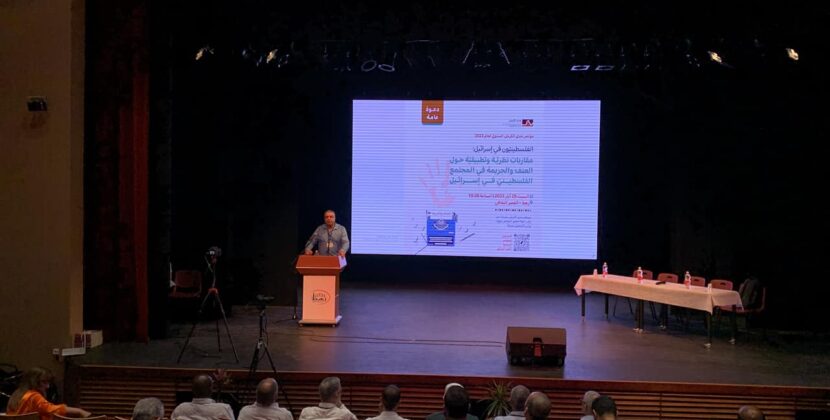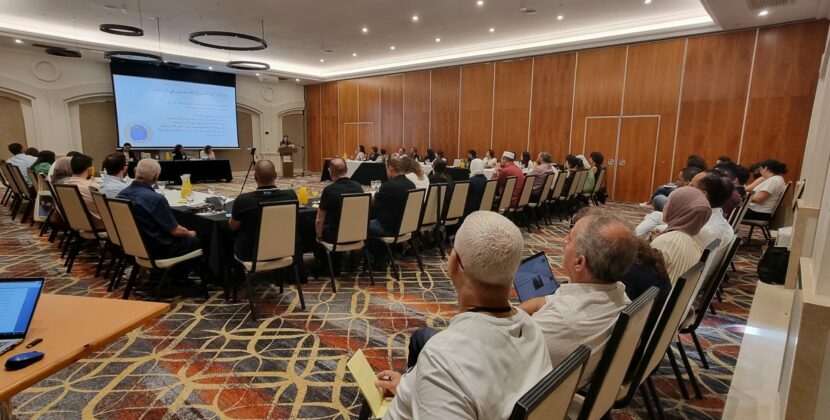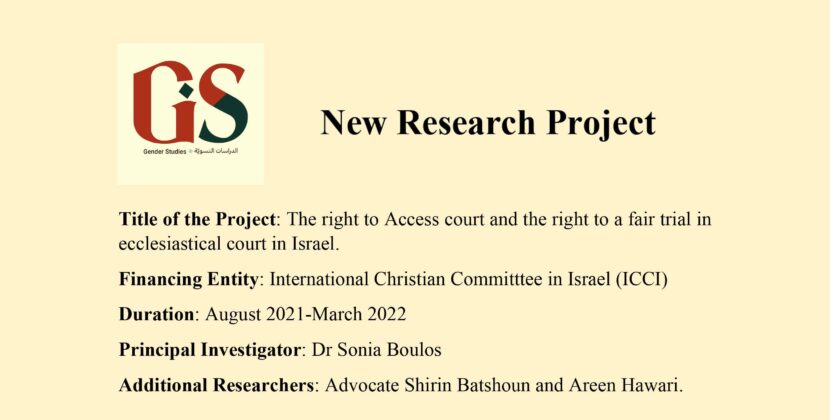On July 1, 2015, Professor Ian S. Lustick was Mada’s guest. His talk entitled Failure of the Two State Paradigm: Political and Psychological Challenges and Analytic Opportunities addressed the question of the failures of the two state paradigm. Professor of Political Science at the University of Pennsylvania where he holds the Bess W. Heyman Chair. Professor Lustick has authored or edited more than twenty books, including Exile and Return: Predicaments of Palestinians and Jews (2005); For the Land and the Lord: Jewish Fundamentalism in Israel (1994); Arabs in the Jewish State (1980).

Lustick began his lecture by drawing parallels between social science and empirical science. He discussed the early stages of the Positivist movement, which called for testing theories and claims through the collection and measurement of evidence. As social science progressed [social] scientists began to form communities in which they made agreements on the truthfulness of certain theories and measurement tools they were to use and accept in the world. This allowed the scientists in these particular communities to avoid asking challenging questions on those particular measurement tools.
Lustick explained that for the positivists, part of being in a scientific community is to agree on the boundaries of your discussion and language. Thus, the social science progressions through the positivist movement created a stifled academic atmosphere in which social scientists with academic legitimacy can put their own theories out into the world without being asked complicated questions in regards to their claims. He also discussed the use of negative heuristics (questions that are forbidden or politically wrong to ask) and positive heuristics (questions that are permissible to ask in paradigms which have already been proven as successful), which define the questions that can or cannot be asked by members within that social science community. Positivism has normalized the acceptance of unproved theories as truth in the social science arena in order to avoid complicated inquiries and challenges.

Lustick applied this positivist theory to the failure of the two-state paradigm. He addressed his own conclusion that it was no longer feasible to focus on the institutional arrangement of either a two-state, one-state, or multiple-state solution as the utopian model for a solution. He also claimed that the two-state institutional paradigm had become a theory that was fully accepted by several social science communities without real questioning or inquiry into the measurement tools behind the paradigm. Furthermore, Lustick stated that asking questions about the shape of the institutional structure should not even be the focus of the analysis.
He argued that there were several negative and positive heuristics, things that have been accepted and things that have been rejected by the social science/academic community, that shaped the discourse behind the two-state paradigm and its resulting failure. Lustick argued that the focus on the institutional structure was one of the main controlling factors causing the breakdown of the two-state paradigm.. Lustick ended his lecture by stating that there are three principles on which the focus should remain, and which should not be compromised regardless of the ultimate arrangement, solution, or outcome to the Palestinian-Israeli conflict. According to Lustick, the three principles, which need to be honored, are: equality, democracy, and non-exclusivist self-determination for people within Palestine/Israel. When later asked to elaborate on these three principles. Lustick acknowledged he was not implying that the subjects in the struggle were already equal. Lustick further elaborated that currently the two sides at the center of the conflict are not on an equal and level playing field. He also explained that non-exclusivist self-determination was necessary because self-determination in the Palestinian-Israeli conflict was never fully free. He stated that Palestinians and Jews do not have the right to any form of self-determination that makes it impossible for the other group to determine its own future.

Lustick concluded by warning against the dangers of viewing issues through a short-term “sports time” lens. Specifically, Lustick was referring to the mentality taken on by politicians, social scientists, academics, and others involved in the two-state solution discourse to look at resolve the issues through short-term solutions or outcomes. For example, there were outcries from people calling for a quick and immediate acceptance of the “Kerry Plan” otherwise the peace process would be dismantled forever. The people behind the outcry didn’t look at long-term solutions. Dr. Lustick explained that in order to come to a real and lasting solution the political players need to look at time strategically, in terms of decades ahead into the future, and not simply focus on short-lived events in the short-term.












